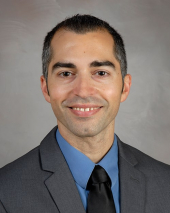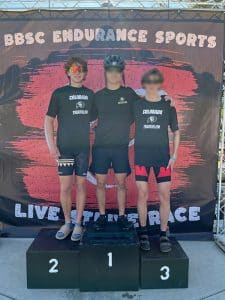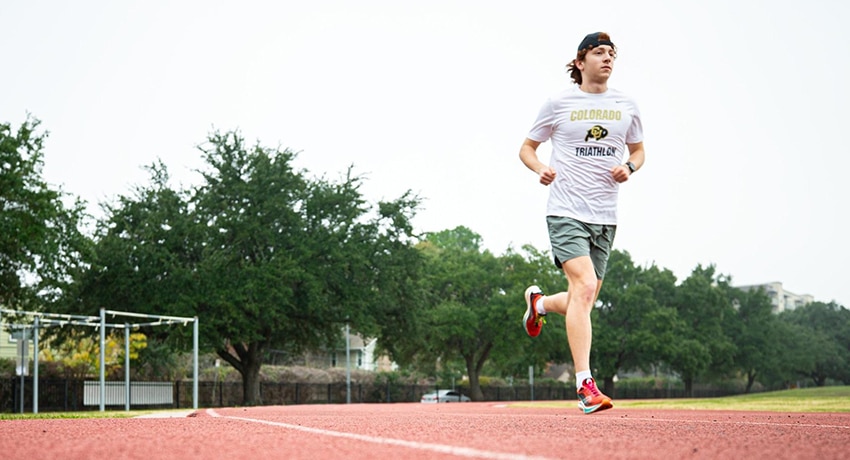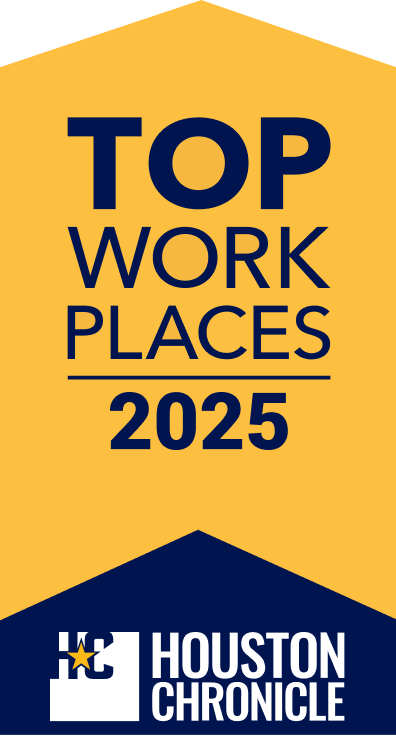A complication in the emergency room could have sidelined Marco Ferrier from his strong athletic accomplishments this year as a freshman at the University of Colorado Boulder. Thankfully, his family trusted their instincts and looked for another opinion. Today, Marco is training twice a day, completing collegiate triathlons throughout the United States, and loving his life in college.
In summer 2021, Marco, age 16, was riding his bike in Houston and took a corner too quickly. His tire slipped, which threw him to the ground. Marco braced himself by putting his hand out to catch the fall. He didn’t think he broke anything, but it hurt to grip the bike handlebars, so he walked home.
“My mom took me to the ER that night, and they said nothing was broken. It was just really swollen,” Marco said. “So, we were pretty happy. We later found out I had multiple fractures.”

Marco still couldn’t move his thumb or much of his hand a few days after his fall. Marco’s family knew Courtney J. Amor, MD, orthopedic surgeon with UT Physicians, so his mom scheduled an appointment with him. Amor found Marco’s hand swollen and bruised, with limited mobility. After looking at X-rays, Amor discovered Marco had three different fractures in his hand and wrist. The most severe was a Bennett fracture, which makes the base of the thumb unstable.
“In Marco’s case, the findings were subtle and could be overlooked, if not evaluated by a specialist. A Bennett fracture requires surgery because the basilar joint of the thumb is unstable. We realigned the bones, and used pins and screws to keep them in place so they would heal correctly,” said Amor, assistant professor in the Department of Orthopedic Surgery at McGovern Medical School at UTHealth Houston.
Process of healing
Amor completed Marco’s surgery just days after his first appointment, which is an important consideration in his medical practice. He tries to get patients with a fracture in for surgery within a week for the best possible healing. It also aligned with Marco’s schedule, since he was planning to attend a cross-country running camp in Montana the following week.
“Displaced fractures will start to heal in a bad position after three to four weeks – and may get to the point where they are irreparable,” Amor said. “We want to avoid that, whenever possible. This is especially important in athletes because any amount of time away from training can really impact their performance.” Amor speaks from a position of understanding of the struggles Marco faced, as he is an experienced triathlete and marathon runner, himself.
Marco’s surgery allowed him to get back to being a great athlete. If he didn’t have his thumb fixed, he would have had trouble becoming a triathlete.
Courtney J. Amor, MD
Marco’s case with intra-articular fractures (ones that extend into the joint cartilage) is always challenging, Amor explained, because there is little margin for error. Bones need to be aligned perfectly to heal correctly and can lead to early-onset arthritis if they are just a millimeter or two off.
“For a 16-year-old patient, that can be a major problem, for which there are no easy solutions,” Amor continued. “So, it’s best to prevent it to begin with.”
Marco also had a couple of other small fractures in his carpal (wrist) bones, but CT scans revealed they weren’t bad enough to need pins.
“Marco’s surgery allowed him to get back to being a great athlete – and quickly,” Amor said. “If he did not have his thumb fixed, he probably would have had trouble gripping handlebars on a bike, for example, and would have had trouble becoming a triathlete. His thumb would never be the same again.”

Succeeding as a college athlete
These days, Marco says he’s definitely more cautious taking corners on his bike. His triathlon teammates tease him, but he’s still as competitive as ever. Marco earned second place in his age group at his first collegiate Olympic triathlon in October 2023, the Pumpkinman Triathlon. This required a 1500m swim, 24.8 mile cycle, and 6.2 mile run. Located in Las Vegas, the route kicks off with an open water swim in Lake Mead. Marco finished strong in just under three hours.
What is Marco most proud of as an athlete? Despite being on varsity four years in high school for running, he appreciates his training work ethic.
“I love waking up early and just getting a good workout in before the sun comes up,” Marco said. “It’s one of my favorite things. Just to say you’ve accomplished something in the morning before your day has even started. I love working out.”
Marco’s bike injury provided a lesson learned for his current triathlon competitions: “Instead of bracing with your hand when you fall, you have to brace with your shoulder, because you have a helmet on to protect yourself.”
While Amor is pleased that surgery helped Marco and his athletic dreams, he said Marco’s success is all due to his motivation and hard work.
“Seeing positive outcomes like this is why I enjoy my job,” Amor said. “It makes all the years of grueling medical training worthwhile.”



